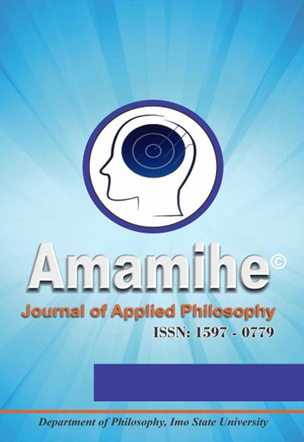
Vol. 20 No. 2, 2022
ABSTRACT
Popper's conception of science has been greeted by a number of controversies ranging from his cancelling out of induction as method in science to his propagation of falsificationism as a method of demarcating science from non-science. Consequently, some scholars felt that Popper has attacked the traditional method in science so much so that Popper's conception of science was viewed as an aberration in science. It is in the light of this that this study seeks to employ the method of analysis to bring to the fore, some key concepts in Popper’s conception of science as a way of showing the rationality behind the choice of falsificationism as a method in science. The study finds out that Popper chose falsification because, for him, falsification gives science a solid foundation which he believes that induction cannot guarantee. The study also reveals that Popper believes that falsificationism brings about qualitative progress in science as against quantitative growth that is associated with induction in terms of induction’s accumulation of evidence. This study finally recommends that Popper's conception of science be approached phenomenologically as that would guarantee a better understanding of his conception science.
